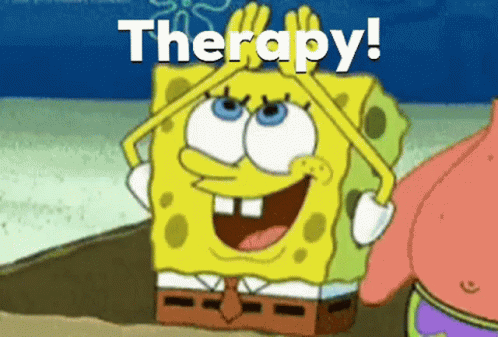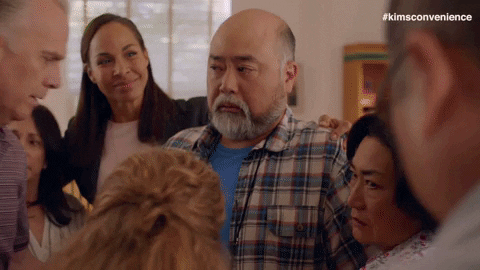Hey there! Burnout is a real struggle, and it’s important to recognize the signs before it takes a toll on your well-being. Trust me, I’ve been there too, and explained it in great detail in my previous post. But the good news is, there are many ways to help with overcoming burnout and finding your balance again.
Now, in this post, I’m going to talk about seeking support to help with burnout. Please remember solutions might be different for everyone since we all have unique needs and preferences. I am just walking you through my personal experience to help you, but it might not be the best option for you. So, it’s important to find what suits you best.
Let’s get started!
Consult a Therapist
I’ve said it a million times before, and I’ll say it forever, that every 👏 administrative👏 professional👏 should👏 consider👏 therapy👏.
Our administrative world offers a perspective that others rarely see, which can be both unique and frustrating. We hold a lot of information and experiences that can alter many people’s days, including our own.

Therapy provided a safe space for me to emotionally vomit my emotions out so I didn’t bring as much negativity home. I also could simply get a consistent supply of sanity checks. Sometimes, having another person from the outside to weigh in objectively can help you orient yourself and your decisions safely.
Spoiler: Everyone else sucked, not me. I was perfect. Just kidding!!
Consulting a therapist can be really helpful if burnout becomes too much. Professionals in mental health are trained to assist with stress, burnout, and mental health issues. They can provide guidance, tools, and coping strategies tailored to your specific needs.
In therapy, you can openly discuss your struggles and find solutions in a safe and non-judgmental space.
Did you know?
In a 2021 Forbes article, they reported that according to SWNS research study, conducted by Onepoll on behalf of Vida Health that:
- 47% believe that seeking therapy is a sign of weakness.
- 30% of participants who weren’t in therapy at the time of the study said it was because they didn’t think their problems were “big enough.”
- 32% reported they “can handle their problems on their own.”
My thoughts on these stats are:
- Response to #1: Being willing to be vulnerable with yourself is a sign of strength. Trying to think differently to improve your world is courageous. Looking inside for joy and fulfillment is a sign of respect for yourself and others.
- Response to #2: Minimization of our problems by saying your problems aren’t big enough, doesn’t make them any smaller. You’re always thinking and experiencing life. Therapy is a place where you can take a moment to share your perspectives in a *safe place.
- Response to #3: Yes, while people can typically handle our problems on our own, it doesn’t mean that therapy can’t be helpful. Therapy can help you find solutions faster, boost confidence in decision-making, and provide support during difficult situations.
*Not all therapists are great therapists. It’s very important to shop around and find a therapist that you feel understands you.
Reach out to Loved Ones
When seeking support while you’re experiencing burnout, you can also reach out to your loved ones for support and share your feelings openly and honestly. Sometimes, just venting or having someone lend a sympathetic ear can provide a much-needed sense of relief. Your loved ones may also offer valuable insights and advice or simply offer comfort during your difficult times.

Venting to a sympathetic listener can be incredibly cathartic. Also, it can be very comforting to know that your loved ones are there for you, ready to provide support and understanding. Being vulnerable with friends can be a healthy and consistent way to grow your relationships.
However, constantly expressing only negative emotions with our loved ones can take a toll on their emotional well-being. It’s important to remember this and strive for a balance in our interactions, supporting each other through good and bad times. Taking care of our relationships is key to maintaining strong bonds and fostering happiness for everyone involved.
Now, your loved ones shouldn’t take the place of a therapist. While friends can provide a great support system, it’s important to remember that they are not professional therapists. They can offer a listening ear, understanding, and advice based on their own experiences. However, for deeper emotional or mental health issues, seeking the help of a trained therapist is crucial.
It’s all about finding the right balance between opening up to friends and seeking professional help when needed.
Create or Join Support Groups
Support groups can be a powerful way to connect with others facing similar challenges. Whether online or in-person, support groups provide a sense of belonging and a community of people who understand what you’re going through. For example, my blog is a way to help form bonds with other professionals. 🙂

In groups, you can share experiences, gain insights, and learn coping strategies from others.
Remember, seeking support and professional help is not a sign of weakness but a courageous step towards self-care. By reaching out to create or join support groups, you’re investing in your well-being and taking proactive measures to overcome burnout effectively.
If bigger groups aren’t your thing, that’s fine. Pick a few safe colleagues at work who you feel might be a good buddy to have and share your experiences with. You know who I’m talking about.
Consult Your Doctor
Burnout can have a significant physical and chemical impacts in your body, so it’s incredibly important to consult your doctor about how you’re feeling when seeking support. Sometimes, we need a little help to get back on track, especially when there might be a chemical imbalance in our bodies.

While self-care and natural remedies are helpful, medications or vitamins can also be crucial for improving our well-being. Your healthcare professionals are the best people to guide you through this process and determine what might be the right course of action for you.
Talk to your doctor and see what they think about how you’re feeling. That’s literally what they are there for!
Remember, it’s okay to seek help when needed. Recognizing the need for extra support is important, including discussing medications or vitamins with a medical expert.
Conclusion: Seeking Support
It’s time to take charge of your burnout and seek the support you deserve. Don’t be afraid to reach out to a therapist or counselor for stress management support. Remember, seeking help is a sign of strength, not weakness. You don’t have to face burnout alone.
Don’t underestimate the power of reaching out to your loved ones during times of burnout. Share your feelings with them and let them provide the support and understanding you need. Sometimes, simply talking about your struggles can help ease the burden and give you a fresh perspective.
Support groups can be a game-changer for dealing with burnout. Consider creating or joining a support group where you can connect with others who are facing similar challenges. Sharing our stories and advice can give us reassurance and help others going through similar struggles.
Consult your doctor if you’re experiencing burnout symptoms for both your physical and mental well-being. They can evaluate your health, give medical advice, and recommend treatments or lifestyle adjustments. Remember, taking care of your physical health helps to combat burnout.
I invite you to read my previous post on recognizing the warning signs of burnout in an administrative role. It will provide valuable insights and help you understand where I started early on my burnout journey. Don’t let burnout take control. Take action today and prioritize your well-being.


